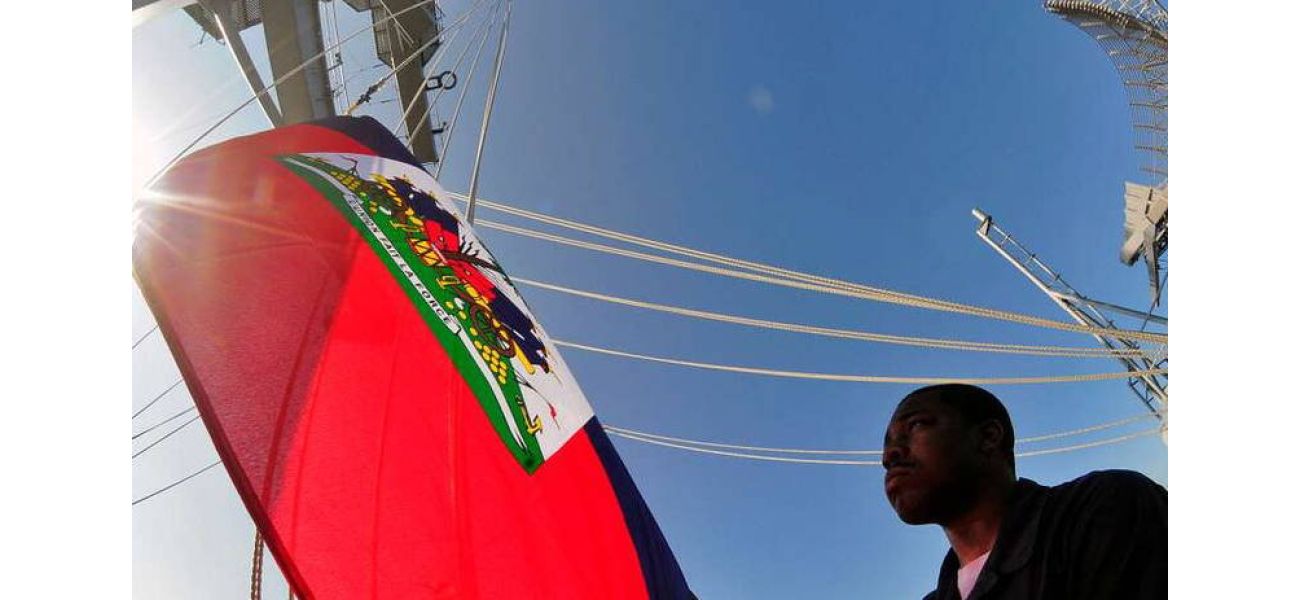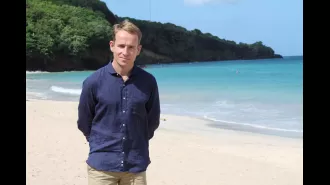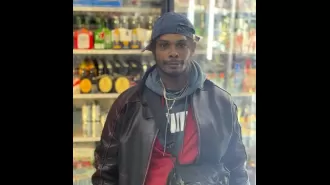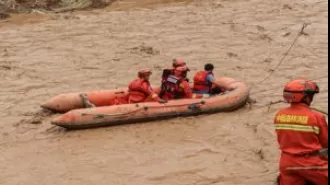Haitian immigrants are being returned to their home country in cages after seeking refuge in the Dominican Republic.
Thousands deported to Haiti, including men, pregnant women, unaccompanied children, and those who never lived there.
December 11th 2024.

According to a recent report by The New York Times, vehicles at the border between Haiti and the Dominican Republic have been spotted transporting Haitian migrants back to their home country in cages usually reserved for livestock. This practice has been ongoing since October 2024, resulting in over 55,000 individuals being deported to Haiti. These deportees include men, pregnant women, unaccompanied children, and even some who have never actually resided in Haiti.
Dominican officials have stated that their goal is to deport 10,000 individuals per week, citing a new strict immigration policy that has been put in place. However, this policy has been met with criticism, as it is seen as a result of a complicated and racially charged history between the two nations. The island of Hispaniola, which is shared by Haiti and the Dominican Republic, has a long and troubled past, further complicating the current situation.
Despite the efforts of the Dominican Republic to curb immigration, the dire situation in Haiti has driven many to flee to their neighboring country in search of stability and security. Since the assassination of Haiti's last president over three years ago, the country has been plagued by a lack of medical resources, gang violence, and political instability. Tragically, over 12,000 people have lost their lives, and nearly 800,000 have been displaced from their homes.
This influx of Haitian migrants has put a strain on Dominican government services, particularly in the areas of public health. As a result, Dominican authorities have expressed frustration, with foreign minister Roberto Álvarez stating, "The general feeling of the Dominican population is that we are providing social services greater than what the Dominican Republic is responsible for." He also added that the international community has largely ignored the crisis in Haiti, leaving the Dominican Republic to deal with the consequences on its own.
Dominican Republic president Luis Abinader has also shared his concerns, arguing that his country should not be viewed as a "way out" for a crisis that has been neglected by the rest of the world. In a warning to the United Nations, Abinader stated that if the situation in Haiti is not addressed, his country would be forced to take "special measures." Shortly after, a stricter immigration policy was implemented in October 2024, with increased border controls and specialized units deployed to crack down on the influx of migrants and human traffickers. "We don't have to offer explanations to respect our immigration laws," the president declared.
Unfortunately, these deportations have been met with opposition from activists, including Sam Guillaume of Haiti's Support Group for Returnees and Refugees. According to the Associated Press, Guillaume believes that the deportations are endangering the lives of thousands of individuals. He also accuses the Dominican Republic of "hunting down" Haitians, with reports of extortion, rape, and detention in inhumane conditions without access to food or water. Some individuals have even reported being subjected to violence, such as beatings and tear gas, for simply speaking up.
William Charpentier, coordinator for the National Coalition for Migrations and Refugees in the Dominican Republic, has also spoken out against the deportations, calling them a form of persecution against Black people and everything associated with being Haitian. He also notes an increase in the number of abandoned children across the Dominican Republic as a result of these deportations.
In response to these accusations, Radhafil Rodríguez, adviser to the Dominican Republic mission of the Organization of American States (OAS), has stated that the government has rejected all claims of mistreatment and promised to take all complaints "very seriously" and investigate them thoroughly. He also expressed solidarity with the people of Haiti during this difficult time. However, there are no plans to pause the deportations.
The ongoing situation between Haiti and the Dominican Republic has also had a wider impact, with flight bans from the US affecting philanthropic efforts and individuals trying to travel to Haiti for the holidays. This further highlights the urgency of finding a solution to the crisis and providing support to those in need.
Dominican officials have stated that their goal is to deport 10,000 individuals per week, citing a new strict immigration policy that has been put in place. However, this policy has been met with criticism, as it is seen as a result of a complicated and racially charged history between the two nations. The island of Hispaniola, which is shared by Haiti and the Dominican Republic, has a long and troubled past, further complicating the current situation.
Despite the efforts of the Dominican Republic to curb immigration, the dire situation in Haiti has driven many to flee to their neighboring country in search of stability and security. Since the assassination of Haiti's last president over three years ago, the country has been plagued by a lack of medical resources, gang violence, and political instability. Tragically, over 12,000 people have lost their lives, and nearly 800,000 have been displaced from their homes.
This influx of Haitian migrants has put a strain on Dominican government services, particularly in the areas of public health. As a result, Dominican authorities have expressed frustration, with foreign minister Roberto Álvarez stating, "The general feeling of the Dominican population is that we are providing social services greater than what the Dominican Republic is responsible for." He also added that the international community has largely ignored the crisis in Haiti, leaving the Dominican Republic to deal with the consequences on its own.
Dominican Republic president Luis Abinader has also shared his concerns, arguing that his country should not be viewed as a "way out" for a crisis that has been neglected by the rest of the world. In a warning to the United Nations, Abinader stated that if the situation in Haiti is not addressed, his country would be forced to take "special measures." Shortly after, a stricter immigration policy was implemented in October 2024, with increased border controls and specialized units deployed to crack down on the influx of migrants and human traffickers. "We don't have to offer explanations to respect our immigration laws," the president declared.
Unfortunately, these deportations have been met with opposition from activists, including Sam Guillaume of Haiti's Support Group for Returnees and Refugees. According to the Associated Press, Guillaume believes that the deportations are endangering the lives of thousands of individuals. He also accuses the Dominican Republic of "hunting down" Haitians, with reports of extortion, rape, and detention in inhumane conditions without access to food or water. Some individuals have even reported being subjected to violence, such as beatings and tear gas, for simply speaking up.
William Charpentier, coordinator for the National Coalition for Migrations and Refugees in the Dominican Republic, has also spoken out against the deportations, calling them a form of persecution against Black people and everything associated with being Haitian. He also notes an increase in the number of abandoned children across the Dominican Republic as a result of these deportations.
In response to these accusations, Radhafil Rodríguez, adviser to the Dominican Republic mission of the Organization of American States (OAS), has stated that the government has rejected all claims of mistreatment and promised to take all complaints "very seriously" and investigate them thoroughly. He also expressed solidarity with the people of Haiti during this difficult time. However, there are no plans to pause the deportations.
The ongoing situation between Haiti and the Dominican Republic has also had a wider impact, with flight bans from the US affecting philanthropic efforts and individuals trying to travel to Haiti for the holidays. This further highlights the urgency of finding a solution to the crisis and providing support to those in need.
[This article has been trending online recently and has been generated with AI. Your feed is customized.]
[Generative AI is experimental.]
0
0
Submit Comment





